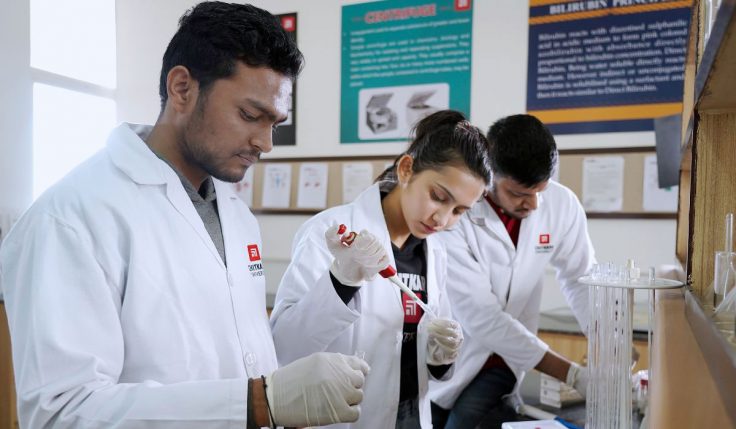The nursing profession has come a long way as the healthcare industry continues to evolve. With the healthcare landscape shifting and evolving, nurses continue to play an important role in ensuring patient care. Their responsibilities and functions have changed over the years, reflecting changes in technology, society’s expectations, and the overall healthcare system.
It can be easily said that the role of nurses has evolved considerably in the modern healthcare system. In this blog, we will see the role played by nurses in ensuring modern healthcare delivery. Keep reading to learn more.
The Expanded Role of Nurses in Modern Healthcare Delivery
There was a time when nurses were only confined to bedside care. While patient care remains central, the modern nurse’s role has also expanded far beyond that. Today, nurses have become successful researchers, educators, policy advocates, and even executives within healthcare organisations.
Nurses are an important part of the healthcare system as they help in developing strategies, improving patient safety, and also contributing to medical research. Let’s see the ways in which they help in modern healthcare delivery.
Operating Technology: Technology has a significant impact on the nursing profession. It not only changes the way nurses deliver care but also how they communicate, learn, and collaborate. Nurses help in maintaining electronic health records, mobile health apps, telehealth apps and electronic patient data.
Using the data collected by nurses helps enhance patient care outcomes considerably. Nurses also facilitate communication and collaboration among healthcare professionals, leading to improved patient outcomes.
Health Promotion: Another important aspect of healthcare delivery is disease prevention and healthcare promotion. Nurses stand at the front to promote healthy lifestyles and prevent diseases.
Nurses educate patients about the importance of healthy behaviours, including regular exercise, a balanced diet, and smoking cessation. They also offer screenings and vaccinations to prevent diseases. In addition, nurses play an important role in managing chronic conditions. They help in managing their medications, monitoring their symptoms, and making lifestyle changes to improve their health.
Healthcare Research: Nurses are also involved in formulating healthcare research and policy. They conduct research to improve patient care outcomes and also influence healthcare policies through advocacy and leadership.
Nurses bring a unique perspective to research and policy, as their close interaction with patients allows them to find gaps in care and propose solutions. Their research also allows them to improve the quality of care, patient safety, and healthcare outcomes.
When it comes to policies, nurses also advocate for formulating policies that can improve patient care and the nursing profession. They hold leadership positions in healthcare organisations and policy-making bodies that enable them to influence decisions that can impact the healthcare system.
Holistic Care: The nursing profession has evolved to take a more holistic approach to patient care. Rather than merely addressing physical ailments, nurses are also considering the mental, emotional, and social aspects of patients’ well-being.
Nurses play an important role in advocating for patient-centric care by ensuring that treatment aligns with the patient’s values and preferences. With the integration of holistic care principles and personalised medicine into practice, nurses are enhancing patient satisfaction, fostering better communication, and improving healthcare outcomes.
Encouraging Cultural Competence: Cultural competence is an important aspect of modern nursing practice and as the healthcare system becomes more diverse, nurses should possess the skills to understand various cultural backgrounds and belief systems.
Cultural competence fosters trust and effective communication between nurses and patients, reducing disparities in healthcare outcomes. In addition, a diverse nursing workforce reflects the broader population as it serves to improve patient engagement and satisfaction.
Recognising the importance of cultural competence and diversity, nursing education and training programs are placing better emphasis on these aspects, ensuring that nurses get equipped with the cultural sensitivity required to offer equitable and inclusive care to patients.
Why Pursue B.Sc Nursing at Chitkara University?
The 4-Year B.Sc Nursing program at Chitkara School of Health Sciences is a full-time program consisting of eight semesters. It prepares nurses and midwives to become successful nurses, including encouraging midwifery practice.
What’s more, the program helps in knowledge acquisition related to wellness, health promotion, illness disease management, and care of the dying. Students pursuing this program can learn the skills required to thrive in a modern healthcare setting.
The students are also provided with opportunities to learn many skills along with acquiring knowledge related to nursing practice. The program is an excellent opening for candidates who wish to be trained in India as per international standards.
Program Highlights of 4-Year B.Sc Nursing
The 4-Year B.Sc Nursing program offered at Chitkara School of Health Sciences in collaboration with Fortis Healthcare prepares students to practice nursing and midwifery in many healthcare settings. Students can get an opportunity to learn the knowledge, skills, and judgment required for competent clinical nursing practice.
Also, read this blog post: 2024 Nursing Trends: Revolutionizing Patient Safety Through Innovations
The nursing program offered at Chitkara School of Health Sciences in collaboration with Fortis Healthcare is also empowered with many program highlights as mentioned below:
Recognised by INC: The program is recognised by the Indian Nursing Council and the Punjab Nurses Registration Council.
Industry Relevant Curriculum: The collaboration with Fortis Mohali offers the necessary hands-on clinical experience imperative for students pursuing this hospital-based academic program. Chitkara builds on existing partnerships and developing new partnerships with companies to fuse industry with academia to make our graduates ready for the future.
Hands-on Experience: Students pursuing the nursing program get hands-on experience in specialised facilities, including well-equipped research laboratories, representations, etc. The program offers a variety of courses, labs, extracurricular activities, and group exercises.
The evolving role of nurses in the healthcare industry presents a compelling opportunity for professional growth and impact. At Chitkara School of Health Sciences, our 4-Year B.Sc Nursing program is tailored to equip students with the skills and knowledge needed to excel in this dynamic landscape. Through a combination of rigorous coursework, hands-on clinical experiences, and exposure to cutting-edge practices, students are prepared to meet the diverse needs of patients across the lifespan. With a curriculum that emphasises critical thinking, evidence-based practice, and interdisciplinary collaboration, graduates emerge as competent and compassionate nurses ready to make a meaningful difference in the lives of others. Our experienced faculty members provide mentorship and support, ensuring that students receive individualised attention and guidance throughout their academic journey. By choosing Chitkara University for their nursing education, students embark on a path to become leaders in healthcare, equipped to navigate the complexities of modern healthcare delivery and drive positive change in their communities.






